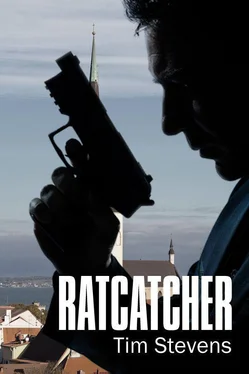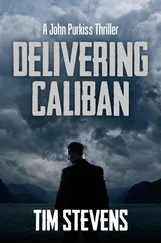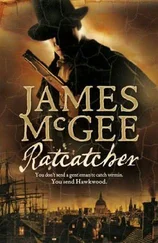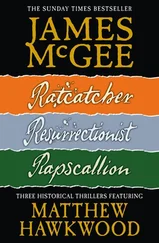Tim Stevens - Ratcatcher
Здесь есть возможность читать онлайн «Tim Stevens - Ratcatcher» весь текст электронной книги совершенно бесплатно (целиком полную версию без сокращений). В некоторых случаях можно слушать аудио, скачать через торрент в формате fb2 и присутствует краткое содержание. Жанр: Триллер, на английском языке. Описание произведения, (предисловие) а так же отзывы посетителей доступны на портале библиотеки ЛибКат.
- Название:Ratcatcher
- Автор:
- Жанр:
- Год:неизвестен
- ISBN:нет данных
- Рейтинг книги:5 / 5. Голосов: 1
-
Избранное:Добавить в избранное
- Отзывы:
-
Ваша оценка:
- 100
- 1
- 2
- 3
- 4
- 5
Ratcatcher: краткое содержание, описание и аннотация
Предлагаем к чтению аннотацию, описание, краткое содержание или предисловие (зависит от того, что написал сам автор книги «Ratcatcher»). Если вы не нашли необходимую информацию о книге — напишите в комментариях, мы постараемся отыскать её.
Ratcatcher — читать онлайн бесплатно полную книгу (весь текст) целиком
Ниже представлен текст книги, разбитый по страницам. Система сохранения места последней прочитанной страницы, позволяет с удобством читать онлайн бесплатно книгу «Ratcatcher», без необходимости каждый раз заново искать на чём Вы остановились. Поставьте закладку, и сможете в любой момент перейти на страницу, на которой закончили чтение.
Интервал:
Закладка:
For a fraction of a second they held the position, taking stock. The man had his left arm around Purkiss’s neck and his right in a claw near Purkiss’s face. Purkiss gripped the man’s right wrist in his left fist. His right hand was free and between them.
Purkiss brought his left hand up with the heel of the palm foremost and slammed it into the underside of the man’s jaw with as much force as he could muster, which was less than it would have been a minute earlier because the pain and disorientation were taking their toll. Still the man managed to avoid the worst of the blow by turning his head and taking the brunt on the corner of his jaw. He loosened his arm further from Purkiss’s neck and jabbed his stiffened fingers at the side of Purkiss’s throat and Purkiss staggered, vision blurring. The thrash of the music was suddenly overwhelming and as if detached from his body he saw himself stumble over the toilet and the man shift position for the killing blow. From somewhere inside him Purkiss felt something building, a great dark shadow which couldn’t be contained and which erupted from his chest and along his arm as he rammed the heel of his palm out again. This time he caught the man directly beneath the nose and snapped his head back. He dropped, finally, the nasal bones driven into the soft tissues of his brain, his knees sinking into the foetid mulch on the cubicle floor.
Purkiss reeled, gripping the cistern and heaving over the bowl, though nothing came out apart from a sour spew of half-digested soda. His foot slipped in the mess on the floor and the wall tilted towards him. He shoved down the lid of the toilet and slumped onto it and leaned forward, head in his hands.
When he opened his eyes, panic scrabbled at him because he thought he’d been out for hours; but by his watch, which was still functioning, barely five minutes had passed since he’d entered the cubicle. At his feet, pressing against his legs with genuine dead weight this time, the man half sat, half slumped, empty eyes turned turned to the ceiling. When he was confident he’d keep his balance Purkiss stood and let the man slide sideways so that his head fell alongside the root of the toilet bowl.
In the man’s hip pocket he found a wallet with a driver’s licence. He read the name — Abram Zhilin, Russian again — and address. The man had no phone on him. Purkiss bent to peer under the door of the cubicle. There were two pairs of feet at the urinal trough. Swiftly he opened the door and exited and pulled it shut and walked past the two men who didn’t turn. He went to the basins. In the mirror his face was bone-sallow, the eyes grey bruises and not fully focused. There were angry red lines along his left forearm and the right side of his neck, seeping blood. He washed his arms and neck, cupped water over his face and between his lips, spitting and repeating.
There wasn’t time to reflect on what had happened, because he had to see if the woman was still out there. It was ten to one and he hoped she hadn’t left yet. He stepped out into the dizzying throb and sidled along the wall towards the bar. She looked up, Lyuba. In her face there was shock. Her glance darted across the floor and he followed it and saw, picked out intermittently in the strobes, the face of the man with the bull neck who’d been following him earlier, separated from him by a mass of clubbers.
He though about moving sideways towards the entrance, but saw her looking in that direction as well, and he understood there were others, probably guarding the fire exits too. He’d been set up, and he was now well and truly cornered.
Afterwards the Jacobin went for another walk, this time along Pikk, the Long Street, past the old guild houses towards St Olaf’s Church. Not one but two more scars on the soul. The old woman had to die after she’d seen what happened to her husband, there was no question about it; but she was blameless, as indeed was the old man. They might even have been left to live if the Jacobin could have been sure Purkiss hadn’t given the man his phone number and asked him to get in contact should anyone come asking.
The three-quarter moon perched on top of St Olaf’s spire, at one time the tallest of its kind in the world. The Jacobin gazed up at it, breath pluming in the cold night air, and thought about human hubris. A year’s meticulous planning, and Purkiss was trying to put a stop to it at this late hour.
On the worst nights — perhaps one in every ten — the Jacobin’s dreams were painted in vast, terrible vistas of devastation: charnel pits engorged with the stick bodies of concentration camp inmates, strontium-blighted cityscapes of black ruin, fields of mud and blood and bone. The Jacobin would wake, sweat-slick, fist crammed into mouth, driving back a scream. The terror would ebb after a few minutes, but the shaking in the hands would persist. The Jacobin didn’t mind; welcomed the dreams, in fact. When one had committed oneself to a refusal to give an inch, the dreams stiffened one’s resolve.
The figures were burned in the Jacobin’s mind. Two and a half thousand operational strategic warheads, two thousand operational tactical warheads, seven thousand stockpiled warheads of both varieties. It was the best estimate of the Russian nuclear arsenal, not at the height of the Cold War but today, more than two decades after the fall of the Soviet empire. There was no chance, none at all, that the growing economic and geopolitical resurgence of the old enemy would not be accompanied eventually by the flexing of its military muscles, whether directly or through terrorist proxies. And no chance that the nuclear stockpile would remain unused. Meanwhile the governments of the EU and the US were embracing detente, rapprochement , a host of French terms that failed to disguise the English one they were meant to replace: appeasement .
As the evidence of the country’s growing aggression and arrogance had accumulated — the Litvinenko murder, the crushing of Georgia — there had been those within the Service who had pressed for a more assertive approach to the Russian Bear: greater numbers deployed in Moscow and Petersburg to bolster the existing networks there, targeted assassinations, pressure on the politicians to adopt a more publicly pugnacious stance. These courageous voices had been shouted down by others, less courageous. Russia is an ally in the War on Terror. We rely on Gazprom’s oil . And, more honestly if hardly more excusably: Look at the state of the economy. There’s no money left . The mealy-mouthed justifications nauseated the Jacobin.
After the morning of Saturday the fourteenth everything would be different. Within a week, within days, the Kremlin would have made its move, and the weasels in Whitehall and Washington would no longer be able to cower in their burrows. And leading the fightback would be the Service, reenergised, with a reacquired sense of purpose.
The old man, the landlord, had opened the door in a fury. His anger quickly dissolved into terror. By the end he was grovelling. He’d been useful, not for revealing where he’d sent Purkiss — this was already known to the Jacobin — but for what he’d said about the questions Purkiss had asked. The picture was becoming extremely complicated.
The call came from Kuznetsov. ‘My men are in place. He’s trapped.’
That was quick. The Jacobin was impressed, but didn’t betray it. ‘They underestimated him last time. Make sure it doesn’t happen again.’
‘You have my word.’ Was there snideness in the tone? Kuznetsov’s true attitude towards the Jacobin had become increasingly apparent in the last week.
‘Non-lethal force only.’
Kuznetsov said nothing.
‘I mean it, Kuznetsov.’
‘It causes delay, and ties up my people who are needed elsewhere. A quick despatch is far more efficient.’
Читать дальшеИнтервал:
Закладка:
Похожие книги на «Ratcatcher»
Представляем Вашему вниманию похожие книги на «Ratcatcher» списком для выбора. Мы отобрали схожую по названию и смыслу литературу в надежде предоставить читателям больше вариантов отыскать новые, интересные, ещё непрочитанные произведения.
Обсуждение, отзывы о книге «Ratcatcher» и просто собственные мнения читателей. Оставьте ваши комментарии, напишите, что Вы думаете о произведении, его смысле или главных героях. Укажите что конкретно понравилось, а что нет, и почему Вы так считаете.












